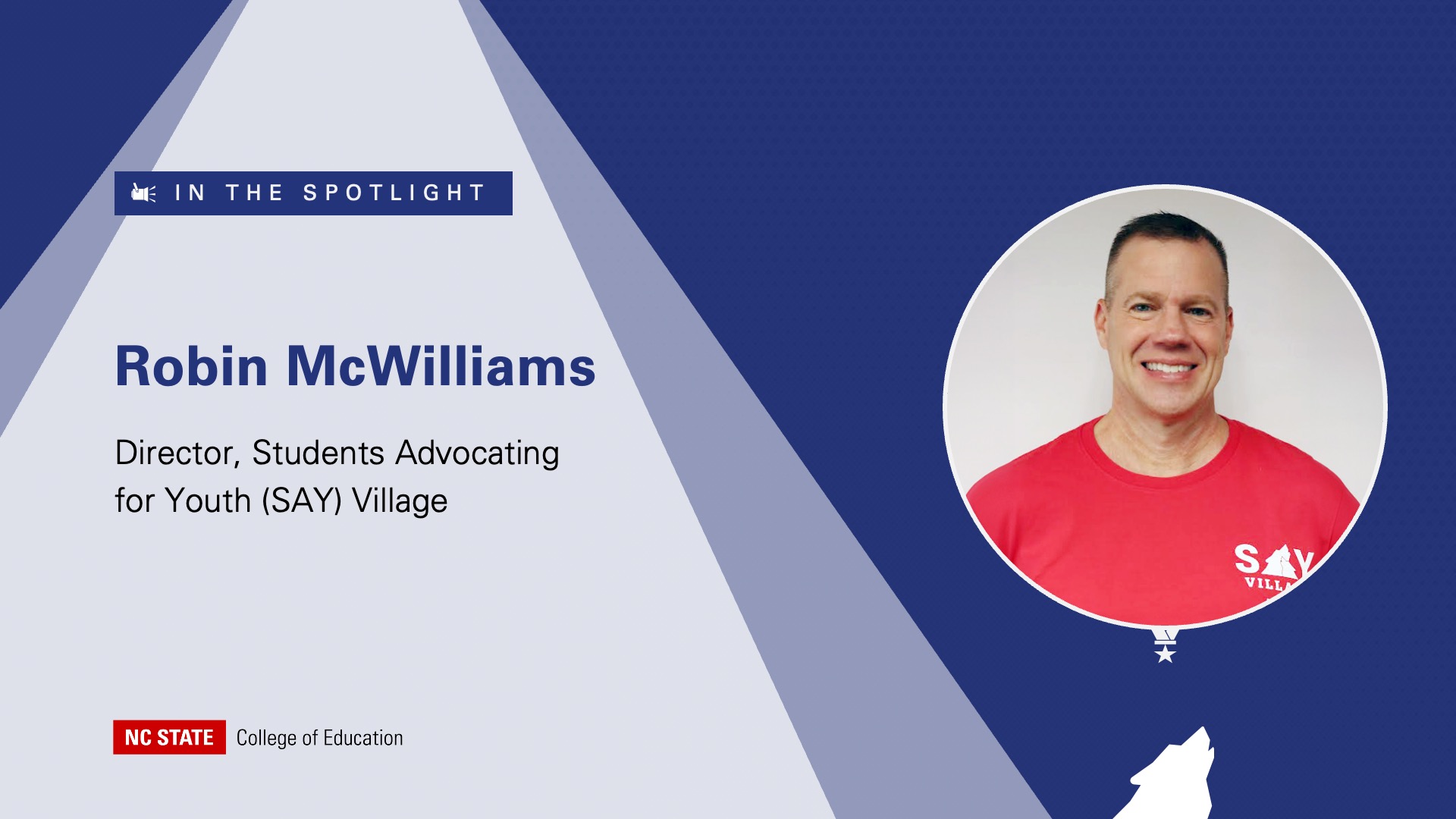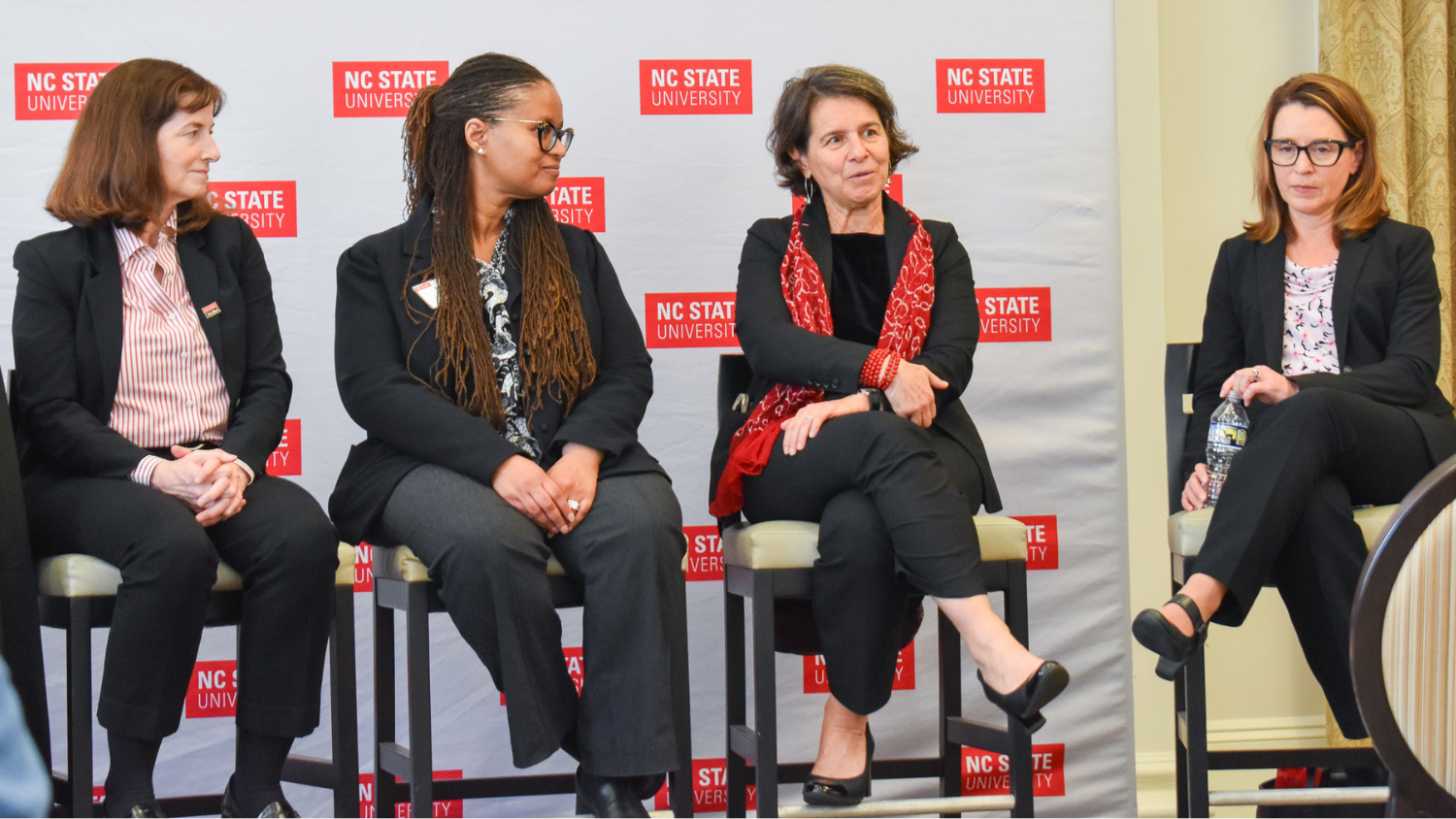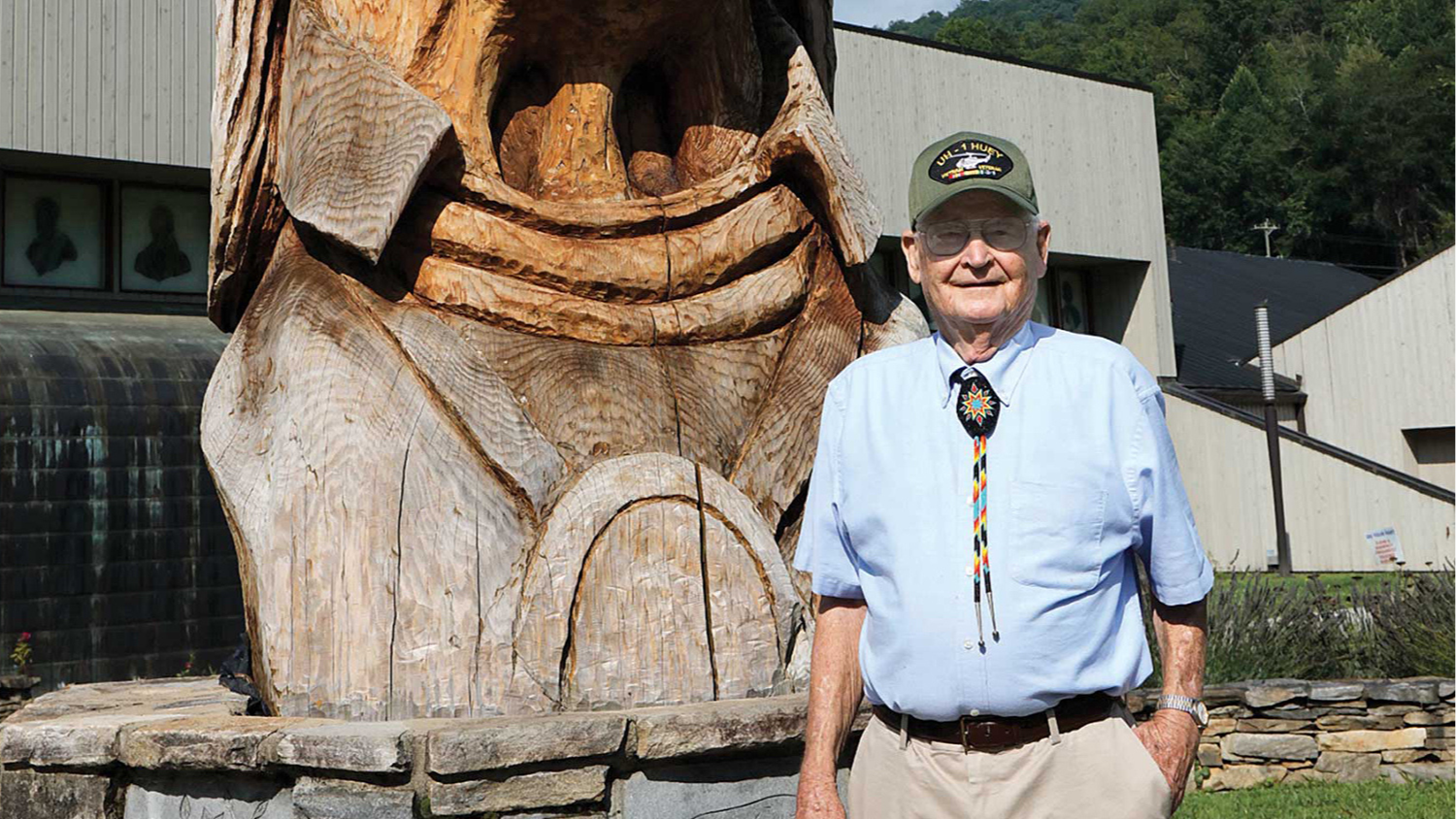People of Poe | Rachael Debnam-O’Dea on the Changing Landscape of English Education

From North Carolina to Norway, Rachael Debnam-O’Dea has experienced many different schools and educational systems. Rachel recently talked with us about the path that led her to a Ph.D. program at the College of Education, her take on the changing landscape of English education and her advice for those considering a career in education.
Tell us a little about your background.
I am the child of a public school employee. My mother was a school counselor in our hometown of Morganton, North Carolina. I always felt like I had an insider’s look into what actually goes into making school happen. I think this made me a little more appreciative of my teachers because I knew what kind of effort went in on the back end. I always knew I wanted to be a teacher, so when I was an undergraduate student at UNC-Chapel Hill, I majored in English and then went through their fifth-year master’s of teaching program.
[spotlight-box heading=”What Others are Saying” align=”left”]”I had Rachael for my ECI 307 class, and I can honestly say that she was one of the few teachers I’ve ever had who truly took an interest in her students as individuals. She would take the time to ask us about our lives outside of class and was always willing to assist us in our projects. She helped shape my class into well-rounded teachers.” ―Kasie Jones, College of Education senior.[/spotlight-box]
When I finished my master’s degree, I was 22 years old, and I wasn’t sure that I was ready to settle down in a community to begin my teaching career. So I ended up going to South Africa for a while and working in schools and educational program development. I then moved to Norway and worked part-time in a school and part-time in a university.
Schools in South Africa, Norway and the U.S. are all very different from each other, so my time abroad helped me realize that education doesn’t have to function exactly like it does here in the U.S.
When I was finally ready to come back to the U.S. to start my teaching career, I ended up at Broughton High School in Raleigh teaching juniors and seniors English. I loved it, and I miss being in the classroom every day.
Why did you decide to pursue a Ph.D. in Literacy and English Language Arts?
English Language Arts is changing a lot. We don’t read the way our grandparents read. We read more on our phones and computers, and the things we read are different ― for example, on any given webpage you’ll have text, videos, links, advertisements, design elements and other embedded content. So we need to teach kids to read traditional texts, but there are also all these new ways that we need to coach kids in communicating and reading. I felt like our field was changing and I wanted to know more about it.
[spotlight-box img=”12112″ heading=”People of Poe” cta=”Meet Our People” url=”https://ced.ncsu.edu/news-new/news/people-of-poe/”]This feature is part of a series of conversations with students, faculty, staff and alumni of the College of Education about why they chose education and how the College is helping them make a difference in the lives of others.[/spotlight-box]
Additionally, I truly believe that every kid has something to offer. Every kid has a gift. Every kid wants to be successful. I’m not sure that our school systems are setup to leverage that. I wanted to be empowered to ask the questions and do the research to figure out how we can make this happen in schools.
What do you see yourself doing after completing your degree?
My core passion is to make sure we’re bridging the gap between researchers, teachers and parents. I want to take the amazing education research people are doing and communicate it in a way that teachers and parents can consume. I think there are a lot of avenues I could pursue after finishing my degree to make this happen.
How do you want to change the world?
I want to be able to support teachers in making sure every student’s needs are met. Every teacher wants to do this, but there’s not always the support out there to make it happen.
[pullquote color=”green” align=”left”]Kids really just want to be seen and recognized. I realized that as a teacher, I could do this for 160 kids a year. Is there a bigger impact you can make on the world?[/pullquote]
Tell us about someone in the College of Education who inspires you.
So many people! My advisor Carl Young is awesome. He makes sure that our undergraduate pre-service middle grades English teachers are super well-prepared. I’m really proud of NC State for the quality of teacher that graduates from this program, and it makes me really glad to be studying education here at the Ph.D. level. Dr. Young is a huge part of what makes this happen. Also, Angela Wiseman has taught me so much about literacy. She’s doing amazing work with incarcerated parents and how they can connect with their children through books, and it’s very inspiring.
Tell us about a time that confirmed your decision to pursue a degree in education.
My first year teaching at Broughton, I had a student who didn’t always love coming to school, but she always tried really hard. I had my students journal every day, and I would give the students feedback every two weeks or so. The first time I gave this student feedback on her journal, she came up to me after class and said, “Ms. D…you really read this!” She was so touched that I read what she wrote and commented on her thoughts. It helped me realize that kids really just want to be seen and recognized. I realized that as a teacher, I could do this for 160 kids a year. Is there a bigger impact you can make on the world?
What advice do you have for someone considering a degree in education?
There are so many different approaches you can take with education. If you’re someone who likes data, you can pursue research. If you’re someone who likes people, there are kids out there who need you. My advice to anybody in education is to practice infinite patience and to make sure you take care of yourself so that your heart can be in it. You can’t pour from an empty cup.
- Categories:


